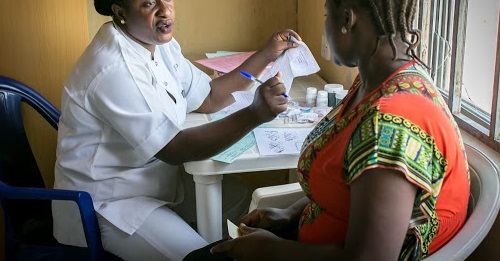Healthcare services in Nigeria have been on a steady decline since the 80s’. An economic downturn caused by the plummeting of oil prices has led to a series of twists and turns in the health sector, which has led to the nation becoming a beehive for numerous health challenges. The country has a very high maternal mortality rate , accounting for 19% of global maternal deaths. Infant mortality is also a lingering issue, with an estimated 119.9 deaths per 1,000 live births of children under the age of 5 despite a steady decline for years. The life expectancy in Nigeria is 54.
The Nigerian government continues to show a lack of initiative when it comes to tackling the challenges in the health sector. The proposed health allocation of N427.30 billion in the 2020 budget is a marginal increase from N424.03 billion in the 2019 budget. But when compared to other key developmental sectors; defence, education, and health; it is the lowest.
At 4.14% of the entire budget, the health allocation is a far cry from the N1.985 trillion allocated to defence, which is 19.23% of the entire budget. What is interesting is that even during a pandemic, a draft of the budget review sent to the National Assembly shows that the budget for health and education has been slashed.
In 2001, member states of the African Union met in Abuja to sign the Abuja Declaration. Under this, they all pledged to commit at least 15% of their annual budgets to improve their countries’ health sectors. Yet Nigeria constantly falls short of this commitment. Sadly, the most it has spent on health since 2001 was nearly 6% of the budget in 2012.
To compound Nigeria’s health woes, the country is expected to become ineligible for a range of external health financing sources, from Global Fund grants to World Bank financing. Unfortunately, many of Nigeria’s key health interventions — including polio eradication, vaccination programs, malaria, tuberculosis, HIV/AIDS, and maternal and child health — are dependent on foreign donors.
At the heart of the poor state of health in Nigeria lies a failure to tackle extreme poverty. The country recently became the world’s poverty capital. Proposing a solution to the health challenges in the nation is tricky. In saner climes, solutions can work one way, but Nigeria is a peculiar State. To improve healthcare delivery and make it affordable, it is necessary that other sectors are simultaneously developed. Transportation, Manufacturing, Communications, Security, etc., have to be fixed.
Modular — one way — solutions cannot solve the Healthcare problem in Nigeria. Modular solutions only work when they fit easily and seamlessly with other elements in the society. The Nigerian health sector needs interdependent solutions. Anything short of interdependent approaches to solving Nigeria’s health crisis will be like pouring water in a basket.
For instance, in many high-income countries, it is possible to implement a modular educational scheme such as free education. All the student has to do is to get to school. Whereas, even with free educational schemes in place in low-income countries, a child can be limited by a family’s inability to physically transport them to school, or battle perpetual hunger disturbing their ability to learn. Nigeria being a low-income country will definitely have to approach things uniquely.
It won’t just be enough to build new clinics and furnish them when patients could experience difficulties transporting themselves to the hospital or afford medication. For instance when the primary health centre at Monatan, Ibadan, Oyo State ran out of free anti-malarial drugs in 2018, a lot of patients could not afford to purchase them on their own.
However, a particular type of innovation—market-creating innovation—is designed to be interdependent at its core, and can help solve our healthcare problems. Market-creating innovations can transform the complex and expensive ways of qualitative healthcare delivery into simple and affordable means so that many people can have access to them. Innovators can create a new market around the health sector and break it into bits and pieces. Also, this will allow more players in the health sector, creating a competitive field, and eventually leading to cheaper rates.
Although most of the infrastructure needed for this market is non-existent, innovators will have to vertically or horizontally integrate their operations to spread the cost of building new infrastructure.
The telecommunication sector in Nigeria has witnessed the power of market-creating innovations in the last two decades. Most of the infrastructure needed was provided by its players, and NITEL is now firmly in our past. The power sector is lacking in market-creating innovations, and the nation continues to suffer for it. The health sector needs market-creating innovation to deliver accessible and affordable healthcare services to the population.
This article conveys the views of the author(s) and not necessarily that of the trustees, staff or members of Ominira Initiative


